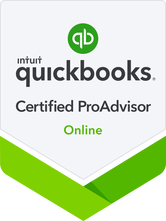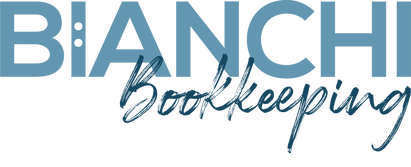Bookkeeping Tips for Small Business Owners: Streamline Your Finances with Bianchi Bookkeeping4/9/2024 Discover essential bookkeeping tips for small business owners from Bianchi Bookkeeping. Learn how to streamline your finances, manage payroll accurately, and optimize cash flow with personalized 1:1 bookkeeping solutions. Running a small business often involves wearing many hats, from handling client relations to managing daily operations. However, one of the most critical aspects is ensuring your finances are in order.
Bookkeeping can seem daunting, but with a few practical tips and the right approach, you can simplify the process and reclaim precious time. Bianchi Bookkeeping specializes in 1:1 bookkeeping services tailored to help small business owners streamline their finances while maintaining accurate payroll management. In this guide, you'll find actionable tips to keep your business books in check and prepare for sustainable growth. 1. Establish a Clear Bookkeeping System The foundation of effective financial management is a clear bookkeeping system. It’s essential to have a reliable way to categorize and organize your financial transactions. Here's how:
2. Monitor Your Cash Flow Cash flow is the lifeblood of any business. To ensure positive cash flow:
3. Separate Personal and Business Finances Blurring the line between personal and business finances can lead to inaccurate records and potential tax issues. To maintain clear boundaries:
4. Stay on Top of Payroll Management Accurate payroll is essential to keeping your employees satisfied and avoiding compliance issues:
5. Maintain Detailed Financial Records Detailed records are crucial for tax preparation, financial analysis, and audits:
6. Schedule Regular Financial Reviews Routine financial reviews help identify opportunities for cost savings and growth:
7. Seek Professional Help When Needed Even with a solid understanding of bookkeeping basics, seeking professional help can relieve your workload and provide valuable insights:
8. Optimize Your Chart of Accounts A well-organized chart of accounts (CoA) provides a framework for managing all financial transactions. This list of accounts, grouped under relevant categories, offers valuable insights into business performance. Consider these tips:
9. Set Financial Goals and Track Progress Establishing clear financial goals is crucial for strategic planning and business growth. Here's how to approach this:
10. Implement Internal Controls Effective internal controls reduce errors, fraud, and financial mismanagement. Here are some best practices:
11. Create a Tax Planning Strategy Tax planning isn't just a year-end task; it's a continuous process that can save you money and prevent issues:
12. Manage Accounts Receivable Efficiently Accounts receivable (AR) is crucial for cash flow management. To optimize collections:
13. Evaluate Your Expenses Regularly Unnecessary expenses can hinder profitability. Here’s how to evaluate and reduce costs:
14. Invest in Employee Training Well-trained employees can enhance productivity and minimize errors:
15. Partner with a 1:1 Bookkeeper for a Tailored Approach Finally, consider partnering with a professional bookkeeper to navigate complex financial challenges:
With these bookkeeping tips, you can maintain better control over your finances, ensuring accurate records, smoother payroll, and healthier cash flow. Reach out to Bianchi Bookkeeping to learn how their personalized 1:1 services can help your business thrive! |
218-415-1690Categories
All
|
218-415-1690



 RSS Feed
RSS Feed

